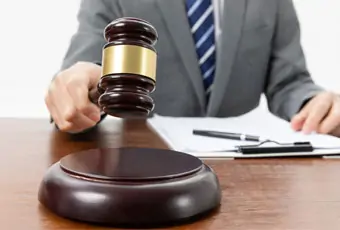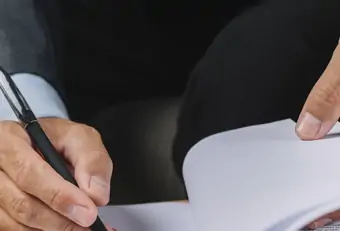Atlanta Truck Accident Lawyer
Truck Accident Attorney in Atlanta
Few things are as frightening as a trucking accident. The size disparity between trucks and anything else on the road is significant, and the damage they can do to both vehicles and their occupants is devastating.
Once the fear and shock of the moment wear off and once the injuries are assessed and treated, there is often a pile of bills and other costs that need to be addressed. If you’ve been in a trucking accident that was the fault of another driver, then the law demands that you are compensated for those costs.
However, like most companies, insurance companies aren’t eager to hand out money, even if they rightfully owe it. At the Tatum Law Firm, our Atlanta truck accident lawyers help victims of trucking accidents who find themselves in these situations fight to get what they deserve.
Potential Liability in an Atlanta Trucking Accident
Trucking accidents are like many car accidents in that liability will typically belong to another driver. However, that’s not always the case. Those who are liable for an accident are those who made an action or inaction that a reasonably careful person wouldn’t have made, and without that action, the accident wouldn’t have occurred.
Therefore, it’s possible that someone other than the driver may be at fault. This is especially true in the case of a trucking accident where things like company policies could be behind the accident.
Some of the potentially liable parties for a trucking accident in Atlanta, GA include:
- The Truck Driver: In many cases, the driver will be liable for the accident. If they failed to properly follow the rules of the road or were driving recklessly, then there is a good chance that they are going to take the blame for the accident. In the case of truck drivers, things like fatigue could play a significant role in creating an accident as well.
- The Truck Driver’s Employer: Employers are often responsible for the actions of their employees, although this principle can be a little more complex when dealing with drivers. Certainly, though, there are situations where a company’s policy can increase the likelihood of an accident. For instance, if it can be shown that unreasonable delivery expectations on the part of the company played a factor in causing the accident, the company could be held liable.
- The Manufacturer of the Truck or a Part: There are times when an accident is caused by a failing part. If it can be demonstrated that the part in question was defective, it’s possible the manufacturer of the truck or part could be a liable party.
- A Truck Maintenance Company: There are also times when the part itself may not have had an issue, but it may have been installed improperly. If that’s the case, then there’s a chance that the maintenance company or whoever else was responsible for installing the part could be held liable.
- A Driver Not Directly Involved in the Accident: Although not necessarily intuitive, there are times when a driver who was not directly involved in the accident could actually be the primary at-fault party. For instance, a driver could be driving particularly recklessly and ignorant of their surroundings. To avoid an accident with that driver, a truck driver might do something that causes an accident with a third driver. In these cases, it could be that first reckless driver who is liable for the accident.
- Companies Related to the Freight: There are times when an issue with freight could lead to, or more likely exacerbate, an accident. For instance, someone could lie and not reveal that they are sending hazardous or dangerous materials, so proper precautions are not taken. There could also be something like an issue with how the freight is packed that creates an imbalance on the truck, increasing the likelihood of a rollover. If a freight issue is identified as a contributing factor to an accident, it’s possible that someone like the owner of the freight or whoever loaded the freight may share in the liability for the accident.
Proving Fault in a Atlanta Truck Accident
A truck accident claim is a subset of an Atlanta personal injury claim. The legal process and expectations for proving fault, which leads to liability, are the same as you might find in a personal injury claim. The burden of proof is on the plaintiff to show why the defendant is at fault. Only once fault is established can restitution for the accident be required.
The first element of proving fault is demonstrating a duty to care. In a personal injury claim, this is the idea that the defendant had a responsibility to those around them. The responsibility included the need to be careful and respectful and to behave in a way that wouldn’t needlessly or recklessly endanger anyone else. Of course, there are limits to this. Drivers have a duty to take reasonable actions or inactions that enable them to be careful of those who could be affected by their behavior.
In the case of anything involving a vehicle, this is generally a given. Every driver on the road has a duty to care about other drivers and anyone who may be near the vehicle. That duty to care extends beyond those parties to others who may also be related to the vehicle’s operation as well. Those involved with contracting with the truck or driver, such as the employer, freight owner, or shipper, all have a duty to care. Similarly, so do manufacturers and maintenance providers. This is generally a very easy component to prove in a trucking accident case.
The second element that needs to be shown to prove fault is a breach of duty. It must be shown that the defendant failed to live up to the duty of care. This means proving two things. First, it must be shown that the way the defendant acted or failed to act in the situation caused the accident. Then, how that behavior failed to live up to their duty to care must be illustrated. In other words, it needs to be demonstrated that they failed to act as a reasonably careful person would have in the same situation.
In a trucking accident, what constitutes a breach will depend upon who the defendant is. For the driver, a breach is typically something like not following the rules of the road, driving recklessly, or driving distracted. Truck drivers also have additional regulations regarding how much time they can drive and how much rest they are required to get. Any violation of these regulations could be considered a breach as well.
For something like the trucking company, a breach would likely be a policy that made the accident more likely. An example might be holding drivers to standards that they could only meet by missing their scheduled rest or driving recklessly. For those involved with freight, something about how the freight was identified, packaged, or loaded onto the truck could be a breach. If the defendant is a manufacturer or installer of a part, then their breach would likely be related to the failure of the part.
The last element needed to prove fault is to show that the breach led to the injury or injuries that the plaintiff suffered. In the case of a trucking accident, this again means proving two things. It first needs to be proven that the accident was a direct result of the breach. This is not always a given. For instance, a truck driver may not have gotten the rest that they are required to, which is a breach, but that breach doesn’t play a role in the accident if the truck is rear-ended while sitting at a red light.
The second thing that will connect the breach to the injuries is to show that the injuries arose as a result of the accident in Atlanta city. Again, this is not the type of thing that you may expect to be controversial, but there are some circumstances where the defendant’s legal team may choose to challenge the validity of the injuries or whether the injuries are related to the accident. They could argue that the injuries were present before the accident or were the result of some other incident after the accident.
An Atlanta truck accident lawyer can use a few different tools to prove fault. One of those tools is the evidence that they gather from a thorough investigation of the accident. This could be physical evidence, like photographs and videos from the scene, or anything else that is relevant to the case.
Witness interviews may be another valuable tool for proving what happened. In some cases, your truck accident lawyer may even use expert witnesses to explain how the crash occurred and what factors are involved. Once fault is proven, you can get compensation for the costs that you suffered as a result of the accident.
Compensation From a Truck Accident in Atlanta
To receive compensation for the costs associated with an accident, the plaintiff must be able to prove that the costs are a direct result of the injuries they sustained. This connects the breach to the costs for which you’re seeking restitution. The costs are easier to prove where there is a bill or something similar involved.
Other costs, less materially evident, can still be proven, though. The costs that are paid out in a claim are called “damages,” and in most trucking accidents, they are paid out in two categories:
- Economic: The damages that are generally easy to calculate are paid out through economic damages. This will have some sort of bill or other financial element that makes it easy to assess the cost. In the case of a truck accident, some of the economic damages that would likely be involved include medical costs, expenses for vehicle repair or replacement, costs of other property damage, and lost wages from having missed work. The damages can even extend to potential future costs. An estimate will be made for continuing medical care and rehabilitation of injuries. If there is any lost earning capacity because the injuries make it impossible for the plaintiff to return to work in the same way as prior to the injury, then those would also be included in the economic damages.
- Non-Economic: This category of damages provides restitution for things that are inherently difficult to calculate a payout for because they don’t have a financial component. These are costs that are mental and psychological in nature. Things like pain and suffering, the loss of a body part or use of a body part, or emotional distress are all addressed through non-economic damages. The money, of course, is not meant to solve the problem. The idea is to hopefully ease stress and burden elsewhere in life, making these issues easier to manage. An estimate of value is given to each of these things.
Another potential form of damages is punitive damages, but these are rarely awarded in a trucking accident claim. Punitive damages are awarded in situations where the court wants to punish and deter behavior that is particularly egregious and malicious. While this can occur in some cases involving a trucking accident, it’s unlikely unless there was something malicious or obscenely reckless about the behavior of the liable party.
One element of damages that is important to be aware of is how they could be limited. For personal injury claims, Georgia has what is known as a contributory negligence rule. What this means is that in the court proceedings, the defendant will have the opportunity to present an argument showing that the plaintiff bears some level of fault for the accident. The burden of proof will be on them to prove fault, just like it was for the plaintiff to prove the defendant’s fault.
If they are successful, a percentage value will be applied to the level of responsibility that the plaintiff bears. If that percentage is 50% or more, then the plaintiff will not be able to collect any damages. If the percentage is less than 50%, then the damages the plaintiff receives will be reduced proportionately to that rate. If the plaintiff is found to be 30% at fault on a damages award of $200,000, they will receive $140,000.
How Long Do You Have to File a Trucking Accident Claim in Atlanta?
There is a limit to when you can file a claim for a trucking accident. That limit is set by the statute of limitations for personal injury claims and is two years in the state of Georgia. There are some slight exceptions to this, including the two-year clock not starting until the injuries were discovered if they weren’t immediately evident.
It’s a good idea not to wait to get the process started, though. You certainly don’t want to count on a possible exception, and the more time you leave your Atlanta truck accident lawyer to investigate and prepare your claim, the greater the likelihood of a favorable outcome.
What an Atlanta Trucking Accident Lawyer Can Do?
Working with a Atlanta truck accident lawyer can give your case a much better chance of success. Your opposition will likely have a team of lawyers working to minimize their payout to you. However, with a skilled, experienced lawyer on your side, you can even the odds and give your case a better chance of a favorable outcome for you.
A trucking accident lawyer will usually begin with a thorough investigation of the accident. The goal is to understand what parties might potentially be liable and to gather evidence that demonstrates their negligence. The investigation may also involve considering the possibility of an attempt to prove contributory negligence and how the defendant’s lawyers may go about doing so.
Your lawyer should also attempt to gather some evidence that defends against those accusations. In the process of investigating, your lawyer will gather several forms of evidence. They’ll likely look for any visual evidence of the accident, examine physical evidence, interview eyewitnesses, and even talk to expert witnesses, depending on where their investigation leads them.
While investigating and before filing a claim, your truck accident lawyer in Atlanta will likely be in contact with the insurance company. They can negotiate with them on your behalf for a deal that is favorable to you. There are some significant benefits to considering negotiation as a solution and avoiding civil claims:
- A civil claim in court is expensive and can take years to resolve. For many people, waiting so long to receive the money they need is not preferable.
- Going to court also opens you up to the possibility of a ruling that’s not in your favor. There are some situations where that risk may not be advisable.
Still, there are some cases where taking the claim to court is necessary. If that happens, it’s your lawyer’s job to represent you and argue your position. They can demonstrate negligence on the part of the defendant.
If successful, they can defend the damages package that they’re requesting on your behalf. They can also defend you against contributory negligence claims. When working with a good lawyer, they are going to use every tool they can to get the outcome you’re seeking.
What to Do When You’re in a Trucking Accident?
How you handle things following an accident can be helpful to your case. There’s a lot that can be done to gather evidence and protect your interests. Of course, your ability to do anything following an accident may be limited by injuries. It’s important that getting proper care for those be the priority.
However, if your injuries are less serious, or if you have someone with you who can help, there are some things in the immediate aftermath of an accident that can be beneficial. There are also some things to consider as the process moves forward following the accident that can help your case as well.
Get Medical Attention
The most important thing following a trucking accident is getting proper medical attention. The first step is getting looked at by paramedics at the scene. You may think that there’s nothing wrong, but it’s also possible that you’re in a state of shock and not aware of a potential injury. Paramedics are trained to identify traumatic injuries and treat them quickly, so it’s crucial to let them see if that’s the case.
If you are alright at the scene, you should still look into getting a full medical examination quickly so that you can get a full picture of any injuries that you might have. You may become aware of a problem that you didn’t initially recognize because of the adrenaline. You are going to want to get this examination reasonably soon after the accident.
Insurance companies sometimes argue that the injuries from an accident aren’t as serious as claimed or are the result of a different incident. They could use a delay between the accident and getting checked out to bolster their argument.
Gather the Contact Information of Any Witnesses
If possible, you want to get contact information at the scene of the accident. Write down the phone numbers and insurance information from any of the other drivers involved in the accident. Information regarding the truck driver’s employer may also be helpful. Additionally, if there were any eyewitnesses to the scene, their contact info may be something that can later assist your Atlanta trucking accident lawyer in making your case.
Document the Scene of the Accident
Another element that can be useful in your case is to document the scene of the accident if you are capable. Both pictures and video can be helpful in recreating what happened. They can help a lawyer get a better idea of who might be liable and also demonstrate to the jury how the accident occurred.
Capturing any injuries, the vehicles involved and their damage, any street signs that are around, and anything else that might be relevant is a good place to start. One shot of the whole scene, including any skid marks, can also be helpful. When it comes to documenting an accident, it’s always better to err on the side of too much and not too little. Your Atlanta truck accident lawyer can sort through what they need and whittle it down later.
Keep Records of Medical Expenses and Other Accident-Related Costs
The importance of documentation continues beyond the scene of the accident. You will need to keep good records of what any doctors say about your diagnosis. You also want to be sure you have a good record of anything else that might be used to prove fault in the accident.
Additionally, it’s important to remember that you must be able to tie any costs that you need compensation for back to your injuries and the accident. Keep good track of medical bills, vehicle repair costs, or anything else related to what you’re suffering because of the accident.
Be Careful About What You Say
In the aftermath, you also want to be careful about what you say about the accident. The possibility of trying to prove contributory negligence on your part is something that insurance companies and their lawyers will be on the lookout for.
If they get word of anything that sounds like you accepting some of the blame, it could be used against you later on. In particular, you will want to be careful when speaking with anyone representing the insurance company, as they are likely to recognize anything that sounds like you admitting fault. Generally, you want to let your Atlanta truck accident attorney handle as much as possible.
Contact a Truck Accident Lawyer in Atlanta
It’s a good idea to contact the Tatum Law Firm as soon as you can after the accident. We can help you with the next steps and protect you from mistakenly saying something that could be used against you.
If you contact us sooner, we can also get an early jump on investigating your accident and preparing for a claim. Remember, if you are going to file a claim, that needs to happen within two years. While that may seem like a long time, there is a lot to do before filing. The more time we have, the better we can prepare.
Get Help Fighting for What You’re Owed After a Trucking Accident in Atlanta
If you’ve been in a trucking accident, you know just how damaging that experience can be. Those fortunate enough to survive are often left with significant and sometimes life-altering injuries. The challenges extend beyond the physical as there are often emotional and psychological costs that can result from the accident as well, particularly in the case of more permanent injuries. The victims of these accidents should legally receive compensation for everything that they’ve had to endure.
Getting the compensation can often be a challenge, though. What you’re owed is paid out by the liable party’s insurance company. They will likely put up a fight against paying everything they should. It can be intimidating knowing that you’re going up against a large insurance company and its team of lawyers.
When you work with an experienced legal team, like the Tatum Law Firm, you can even the odds and take away that advantage. We’ve gone up against the insurance companies and their lawyers before. We understand the law and make sure you’re given what you’re owed. If you’ve been in a trucking accident and need to make sure you get everything you deserve, contact us today.






